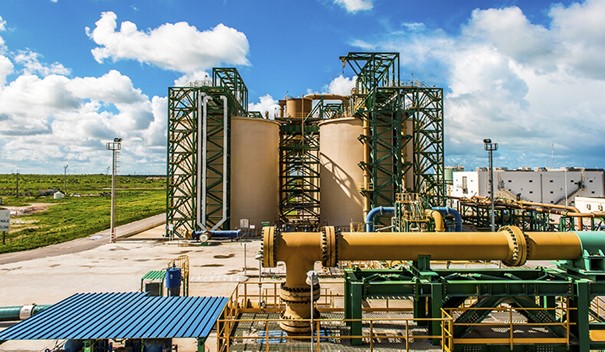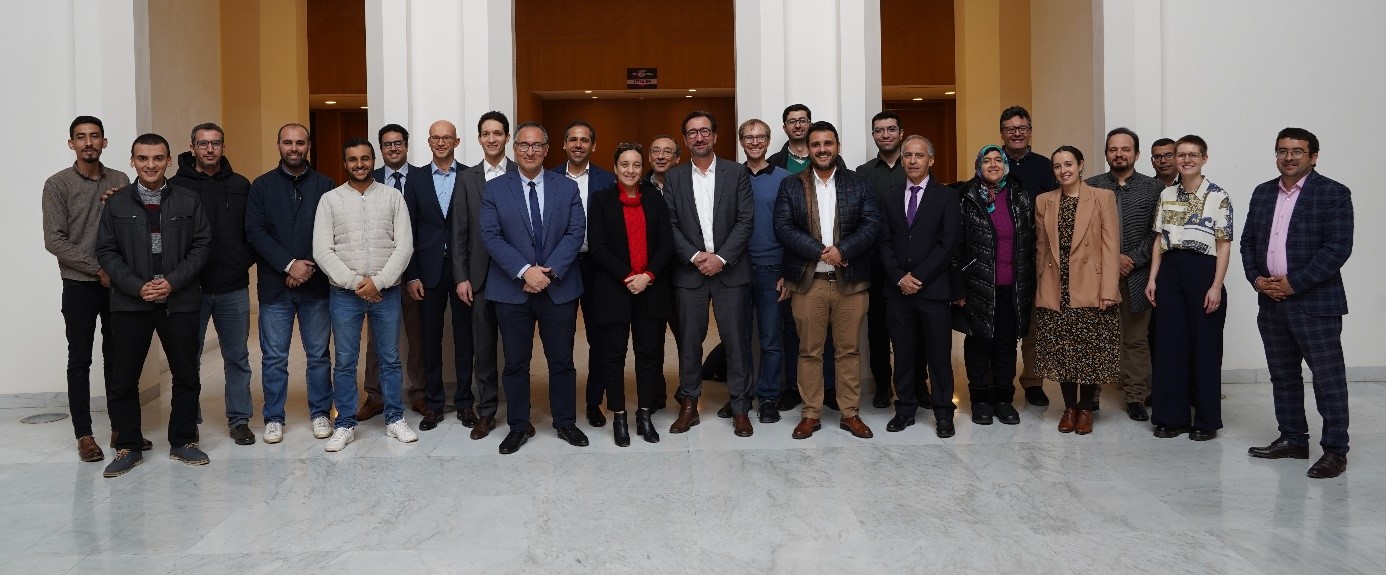Affordable and clean energy
Climate action
Sustainable cities and communities
Coordinator: Fachhochschule Aachen - Campus Jülich - Solar-Institut
Contact: Prof. Dr.-Ing. Ulf Herrmann, Christian Schwager
Address: Bayernallee 11, 52066 Aachen
Phone.: +49 241 6009 53529
Email: schwager(at)sij.fh-aachen.de
Project partners in Germany:
- Deutsches Zentrum für Luft- und Raumfahrt e.V. - Institut für Solarforschung
- Wuppertal Institut für Klima, Umwelt, Energie gGmbH
- Kraftanlagen Energies & Services GmbH
- Hilger GmbH
- sbp sonne gmbh
Project Partners in Morocco:
- Office Chérifien des Phosphates (OCP)
- Mohammed VI Polytechnic University (UM6P)
- Green Energy Park (GEP)
- Institut de Recherche en Energie Solaire et Energies Nouvelles (IRESEN)
System for the needs-based provision of solar process heat for phosphate-drying processes in Morocco
The supply of heat using renewable energies is an important part of the energy transition. The majority of process heat in Morocco is, however, generated from fossil fuels. Moroccan phosphate-producing company OCP (Office Chérifien des Phosphates) is striving to replace its current fossil-based process heat supply with solar energy. The project team aims to construct and operate a solar phosphate drying pilot plant, conducting trial operations with the objective of proving that solar process heat can be provided on a 24/7 basis. Building on this, the system will be advanced and optimised, so that the technology can be utilised sustainably and commercially.
Objective and motivation
Within the context of the energy transition, the generation of heat using renewable energies is increasingly a point of focus. Morocco is driving the energy transition
with a view to guaranteeing a carbon-free energy supply in future, while at the same time gaining independence from energy imports. Various sectors have considerable need for process heat, which for the most part is covered by fossil fuels. Phosphate producer OCP (Office Chérifien des Phosphates) is among the companies striving to decarbonise their current oil and gas-based process heat generation in the near future. Phosphate drying processes alone require 3.6 TWh of fossil fuels to generate process heat each year.

In this context, the project aims to demonstrate the generation of high-temperature process heat using concentrated solar technology in Morocco, taking the phosphate drying process by way of an example. As this process requires high temperatures, solar tower technologies are exceptionally well-suited as a source of renewable energy. The primary objective of the project is the construction and trial operation of a solar phosphate drying pilot plant at an OCP location in Morocco. The technical concept includes an energy-efficient overall system consisting of innovative components.
Methodology and innovations
To date, the solar generation of high-temperature process heat for industrial drying processes in 24/7 operation is a unique project. The complex interplay of innovative technical components within the overall system extends beyond what is considered state of the art within the field of solar process heat generation. Nonetheless, the system will be scalable and ready to be put into commercial use in the near future. To this end, the project team will select a plant configuration that is as functional as possible, matching the individual components optimally to one another in terms of performance characteristics, to minimise production costs per tonne of dried phosphate. At the same time, the team will examine the technology’s potential for the Maroccan heat sector within the context of a socio-economic study. Dynamic process simulations will support the conceptual design and optimisation of the system. Dynamic process models allow the team to optimise and scale up both the plant configuration and mode of operation at a later date.
Consortium, results and utilisation
The trial run of the pilot plant aims to demonstrate that this solar technology is able to provide a reliable supply of process heat at the desired temperature level, on a continuous 24-hour basis. Expanding on this, the team will derive a commercial design, which, in principle, will allow OCP to solarise phosphate drying processes by 2030. In addition, the accompanying socio-economic study will determine the potential of this solar technology on the Moroccan process heat market and demonstrate transformation possibilities.

